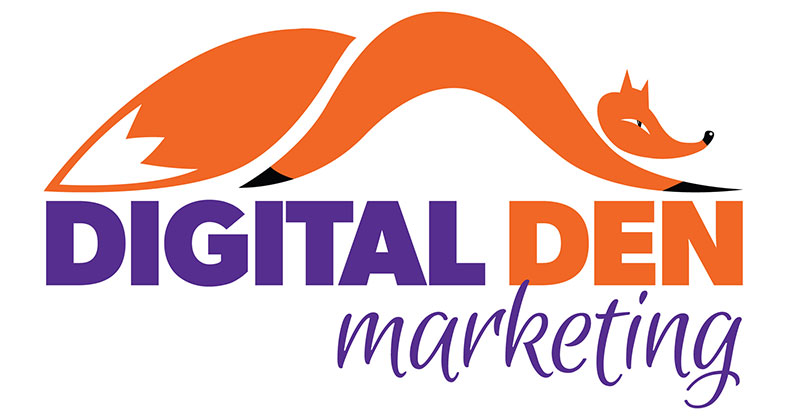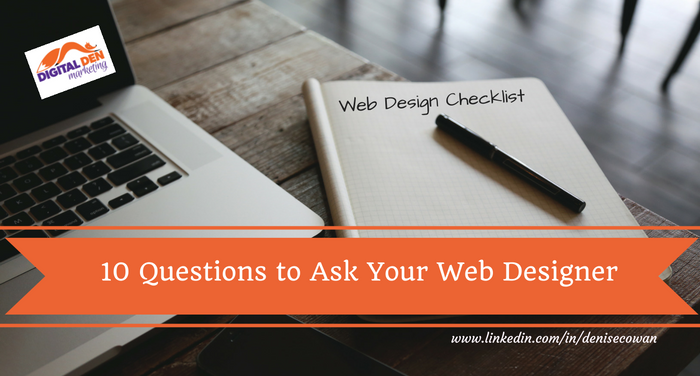Although I regularly conduct website audits for clients, reviewing the design, content and performance analytics of a client’s website, I’m by no means an expert in web design or development i.e. I don’t design and build websites myself. But I add value to the process by providing insights on what looks good, reads well, conveys the skills and offering of the client company effectively and offers a good user experience. Based on these insights I make recommendations to improve a website…… and then hopefully a good web designer/developer steps in and does their thing to bring these ideas to life so I can get on with marketing the site to drive traffic to it, generate leads and increase sales.
However, one of the big challenges for any company owner or marketing manager is knowing who to hire to design and build their new site or site upgrade, and too often the decision is based on or heavily weighted on one thing – the price.
Price is undoubtedly a major factor – as a small business myself, I’m all too aware that a pot of gold to deliver the all singing and dancing website you envisage in your head is rarely available. What the lack of a large budget does mean however is that you need to do your research to identify a partner who can most closely meet your needs, whilst delivering within a budget you can afford, or should I say within a sensible budget (don’t be taken in by the ‘get a website for £99’ type of adverts). For anyone in this situation, particularly new entrepreneurs and business owners, the following set of questions might help when you are interviewing a few web designers about what they can do for you:
- Can I see some examples of previous sites your company has built? – this will enable you to decide if you like their design work and will give you a good idea of what you can expect to receive. Often there are examples on their website portfolio but perhaps not the most recent and best examples of their work as web designers, like marketing consultants often fall into the trap of spending much of their time working on their client’s marketing, rather than their own! So ask for recent examples.
- Will the design be responsive and display properly on desktop computers, tablets and mobile devices?This is essential with the huge growth in smartphone ownership, which outstrips the actual number of people in the UK. There is also a growing trend of conducting online research and purchasing on these devices, which for many is taking over from the former ROPO scenario (research online, purchase offline). Combine these points with the fact that Google penalises sites that are not user-friendly, and this becomes a fairly important question to ask.

- Will the design be bespoke or will it utilise off-the-shelf software such as WordPress?Ask your designer which he/she would recommend for your business and why. There are various advantages and disadvantages of bespoke and off-the-shelf packages, the decision really depends on which one most closely matches your needs, taking into account the features and benefits you want to offer your website users and the tasks you need to simplify for them to make the customer experience more rewarding. It’s not a simple case of one being a better option than the other.
- Who owns the web files (and domain name)?If you decide that you are not happy with the service received after the site goes live and wish to change your provider, will you we able to do this without any issues over ownership of what should be yours? This tends to be challenging to do in the case of a bespoke website as you may own the files but other designers may not want to try to decipher the original designer’s code and will recommend starting from scratch again as a better option but likewise, find a good team of designers who build a bespoke system that meets your needs and you won’t need to worry about this.
- What are the stages in the design and build process, the approximate timescales for delivery and what do you need from us?There is a huge commitment required from the website owner as well as the website designer and the best results are achieved when both are involved in the process and working closely together to meet the same set of goals. You are responsible for providing the initial brief, which they will tease out further. You also need to provide much of the content and imagery (or work with a copywriter like me who will help you to take your content and make it better or create it for you from scratch).
- Will all pages of the site be content managed?Can you create new web pages in sections of the site as required, edit text on pages and upload images without incurring extra costs (within reason). It’s important to think long-term beyond the site going live as the site doesn’t stop there. Google, your clients and your potential clients want to see new information and continue to learn more about what you have to offer. You need to be able to make these updates cost-effectively.

- Is SEO covered in the design and build?Ensure SEO is factored into the design of your site and that you are able to add your own title tags, meta descriptions, heading tags, alt tags, update URLs on web pages (known as Meta Data) and create new pages. Also, in the case of an existing site, do ask what steps will be taken to ensure that your rankings don’t drop after a switch-over to the new website. This is particularly important for e-commerce websites and one that you should factor in a budget to get specialist advice on.
- How will you ensure that the website is user-friendly overall and that performance is measurable after it goes live?Tools like Google Analytics and Search Console need to be integrated with the site and a process put in place to monitor these and implement changes to facilitate continuous performance improvements after the site is made live.
- What training will be provided to enable our team to manage the site going forward?A good web designer will provide training as part of their package – both face to face training and often a user manual. Don’t forget to ask for this support for all team members who will be assigned to work on the site.
- And finally how much will it cost?What are the design and build costs? How much is annual hosting? How much are annual maintenance costs? What other costs do I need to consider? You will need support from time to time to update the website – is this charged on an hourly rate or is an annual support package provided? What does this include and how much does it cost?
This isn’t a complete list of every question that you’ll need to ask your prospective web designer but it’s a good start! If you’re a website owner who has gone through the process of creating or upgrading your website, what questions would you add to this list based on your experience? Or if you are a web designer or digital project manager what other questions would you like to be asked that would help business owners to distinguish what is different between you and your competitors?
Denise Cowan is a Digital Marketing Consultant based in Northern Ireland, specialising in digital strategy, marketing project and campaign management, content marketing and copywriting. Email denise@digital-den.co.uk if you’d like to discuss anything you’ve read in more detail. Connect with me onFacebook, Twitter and LinkedIn.

